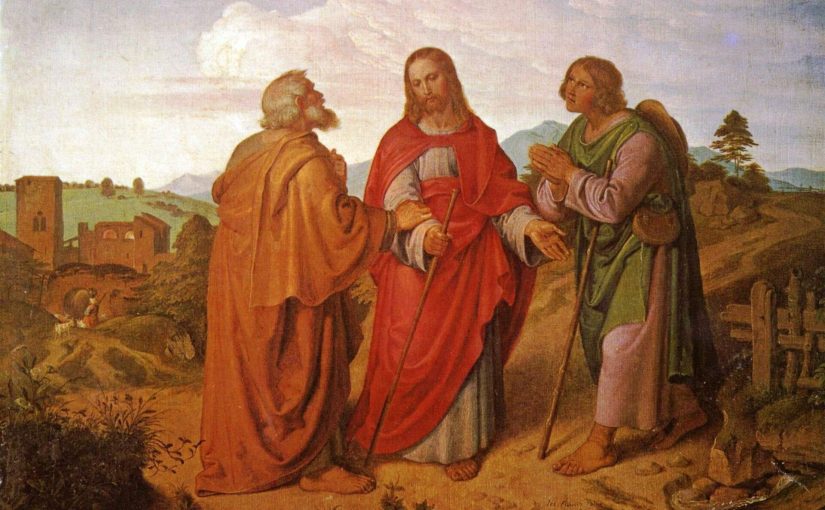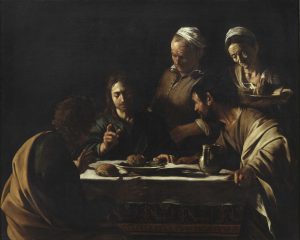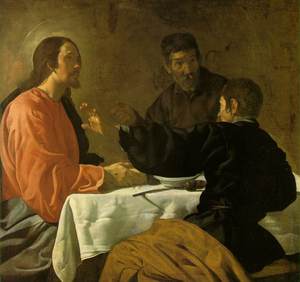We know the Gospel narrative of encounter of the Risen Lord at Emmaus. Read Luke 24:13-35. We know there were two men with Jesus. Many of us don’t know the names of these two men.
The Roman Martyrology tells us: “At Emmaus, the birthday of the blessed Cleopas, Disciple of Christ. It is related that he was killed by the Jews, for the confession of our Lord, in the same house in which he had entertained Him and where he was honourably buried.”
Piecing together information from other sources we have consider the entry of the renown historian, Bishop Eusebius of Caesarea, who quotes the earlier chronicler, Hegesippus, writing in c. 180, that he had years before interviewed the grandsons of Jude the Apostle and learned that Clopas was the Brother of St Joseph, spouse of the Virgin Mary: “After the martyrdom of James, it was unanimously decided that Simeon, Son of Clopas, was worthy to occupy the See of Jerusalem. He was, it is said, a Cousin of the Saviour.” Hegesippus noted, that Clopas was a Brother of Joseph. Epiphanius adds that Joseph and Cleopas were Brothers, sons of “Jacob, surnamed Panther.”
And then there’s the surviving fragments of the work Exposition of the Sayings of the Lord of the Apostolic Father Papias of Hierapolis, who lived c. 70–163, Cleophas and Alphaeus are the same person: “Mary the wife of Cleophas or Alphaeus, who was the Mother of James the Bishop and Apostle and of Simon and Thaddeus and of one Joseph.”
Here in sacred Scripture and in Tradition we meet the Risen Lord, and we meet hope. Saints Clops and Simeon at Emmaus communicate to us that the heart’s desires are fulfilled in the Lord, in the Breaking of the Bread, where all else falls away and centers us on the one we desire: God Himself.


